#roy boulting
Explore tagged Tumblr posts
Text
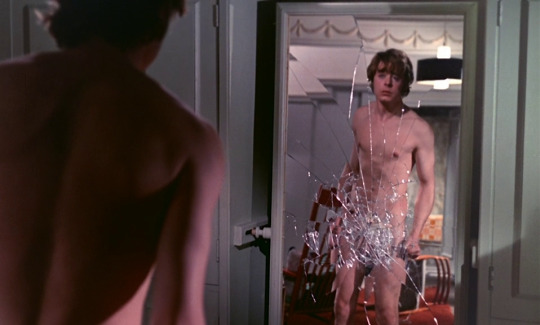
Roy Boulting - Twisted Nerve (1968)
161 notes
·
View notes
Text


Goldie Hawn filming “There’s a Girl in my Soup”, 1970.
#Goldie hawn#1970s#there’s a girl in my soup#peter sellers#roy boulting#1970s movies#70s aesthetic#70s fashion
618 notes
·
View notes
Text

Roy Boulting - Twisted Nerve (1968)
13 notes
·
View notes
Text

Lilli Palmer "Thunder rock" 1942, de Roy Boulting.
7 notes
·
View notes
Text

Twisted Nerve (1968)
60 notes
·
View notes
Text
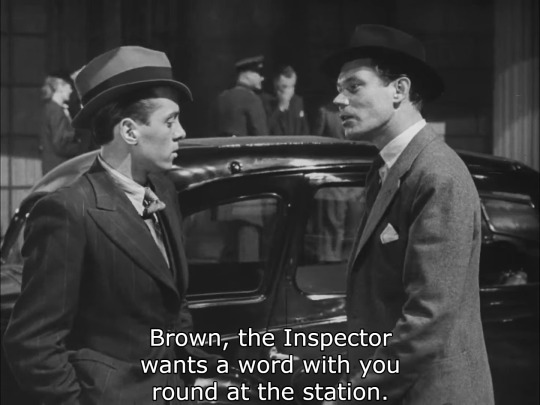
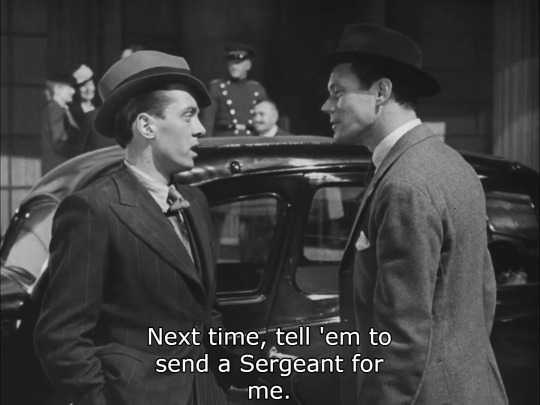
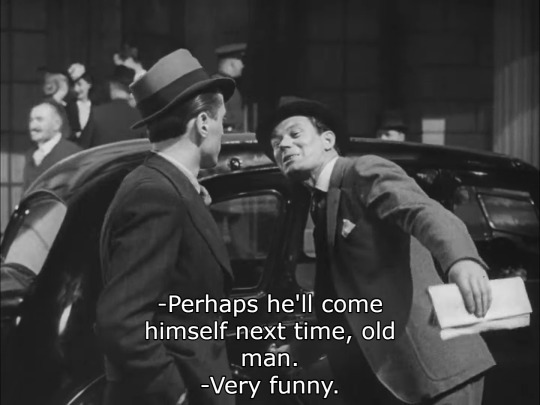
Brighton Rock(1948)
#film#brighton rock#1948#richard attenborough#john boulting#roy boulting#graham greene#40s#vintage#...
10 notes
·
View notes
Text










Twisted Nerve (1968)
"Martin's dead. He's been bad. N- not Georgie. Bad, bad Martin. And now... I lay me down to sleep, pray the Lord my soul to keep... if I die before I wake... if I die before I... wake..."
#twisted nerve#1968#british cinema#roy boulting#leo marks#roger marshall#hywel bennett#hayley mills#billie whitelaw#phyllis calvert#frank finlay#barry foster#salmaan peerzada#gretchen franklin#timothy west#russell napier#christian roberts#brian peck#timothy bateson#bernard herrmann#a... tricky little film. that iconic whistling score has long outlived the source material‚ a troublesome but undeniably well made psycho#thriller that gently pushed boundaries for mainstream brit cinema in the late 60s. Bennett was never prettier‚ the Boulting bros never#more focused and challenging‚ but time has not been kind to some of the language and attitudes on display here. actually time isn't even#really the main issue: plenty of people were upset by this film's depiction of developmental disabilities and its pseudo scientific#exploitation plot on first release (so much so that the producers added a spoken disclaimer to the beginning of the film). it's undoubtedly#objectionable in its broader thrust and its central conceit and i quite get why that will be enough to turn most people off it and even#earn their enmity. but get past it (if you can‚ if you choose) and there are still things of value here‚ imo. the supporting cast is#particularly glittery‚ with Foster (repellent)‚ Whitelaw (complex and quietly tragic) and Peerzada (eternally patient and dignified in his#dealings with ceaseless racism and ignorance) the particular stand outs. it's handsomely shot‚ too‚ with Roy B flexing his creative muscles#a little in a rare aside from his usual comedy film projects. idk there's something here‚ i think. but watch forewarned and prepared
3 notes
·
View notes
Text
The Boulting brothers

0 notes
Photo
There's a girl in my soup (1970) Roy Boulting

449 notes
·
View notes
Text

Roy Boulting - Twisted Nerve (1968)
27 notes
·
View notes
Photo
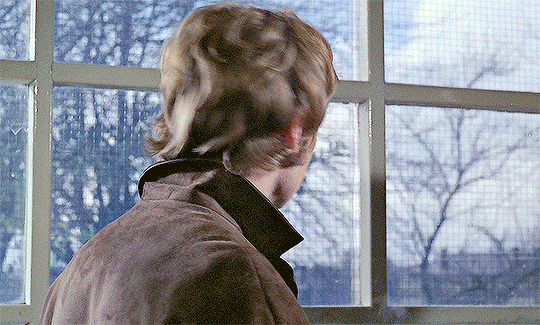
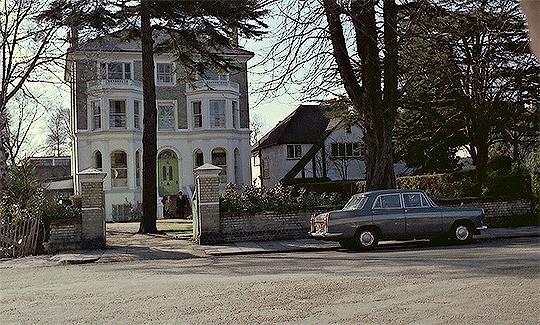
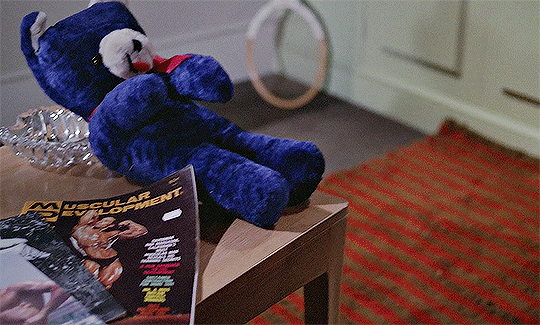
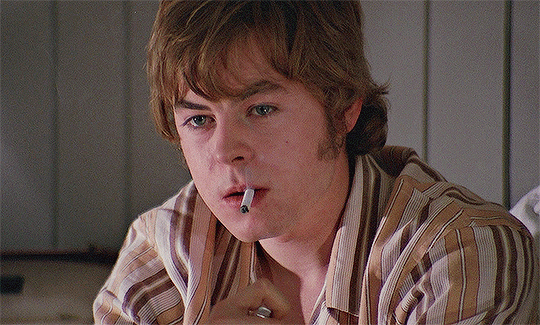
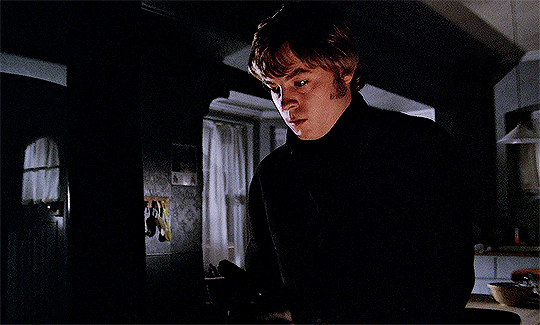

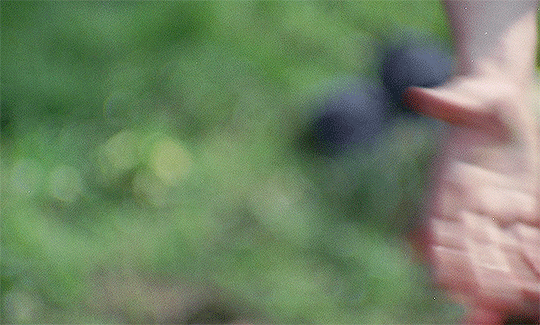
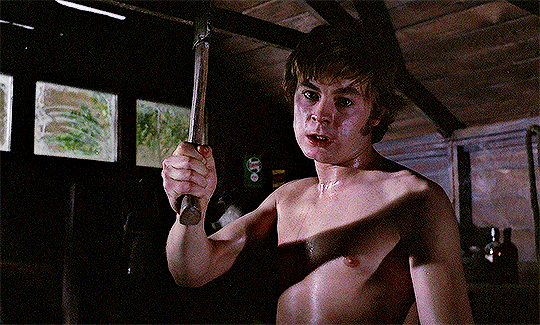
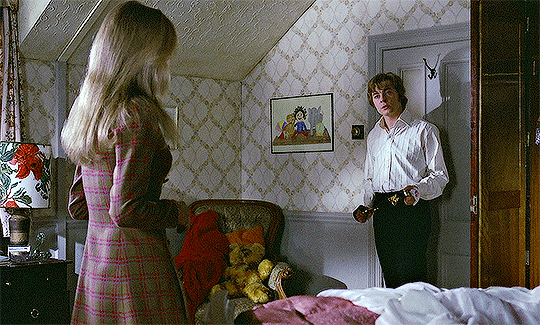
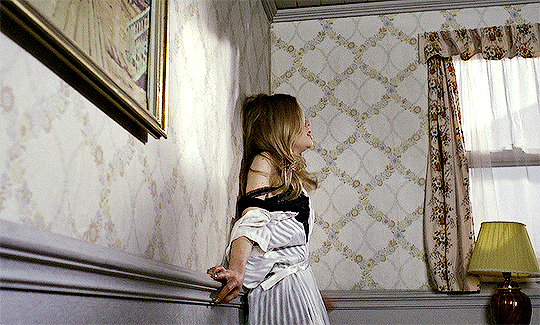
I find myself asking is it really the home, the enviroment, the way a person is brought up that creates the neurotic, the psychopath, the psychotic? Or could it be some error in the chromosome structure working beyond the compass of our most powerful microscope?
Twisted Nerve (1968, dir. Roy Boulting)
#twisted nerve#filmedit#zombooyah#classichorrorblog#horroredit#userhorroredits#junkfooddaily#my gifs#classicfilmblr#dailyflicks
185 notes
·
View notes
Text

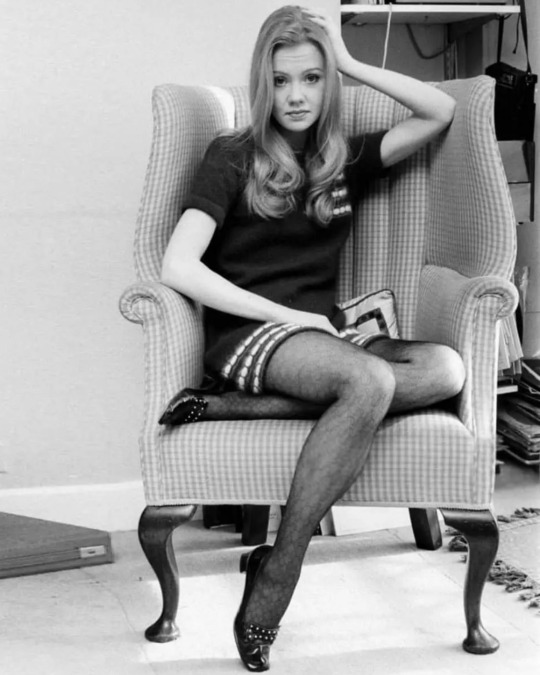
Hayley Mills at her Chelsea home. A portrait of her by Roy Boulting hangs on the wall, 6th November 1969🌼🌸
Photo by Harry Fox📸
Via @isabelfutre on Instagram🌼🌸
55 notes
·
View notes
Text
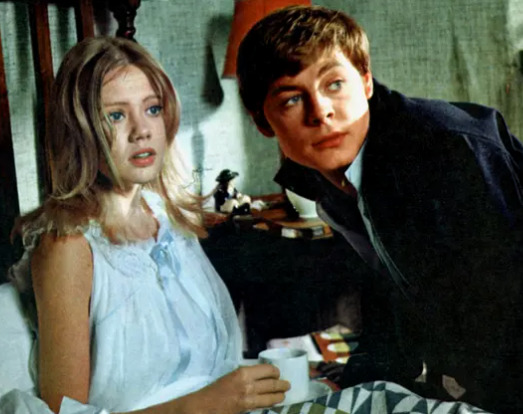
Hayley Mills-Hywel Bennett "Luna de miel en familia" (The family way) 1966, de Roy Boulting.
19 notes
·
View notes
Text
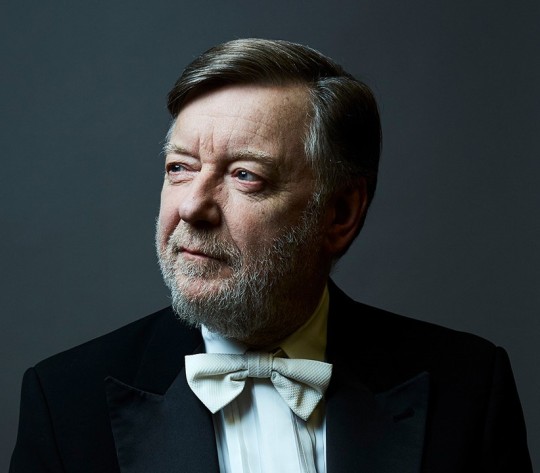
Sir Andrew Davis
One of Britain’s greatest conductors widely admired for leading the BBC Symphony Orchestra at the Proms
One of the most beloved and highly esteemed conductors of his generation, Sir Andrew Davis, who has died aged 80 of leukaemia, was a familiar presence on the podium, not least through his countless appearances at the BBC Proms in his capacity as chief conductor of the BBC Symphony Orchestra (1989-2000).
After Adrian Boult, his was the second longest tenure of the post in the history of the orchestra. During the same period he was also music director of Glyndebourne Opera (1988–2000), conducting works by Mozart, Janáček and Richard Strauss, among many others.
The sheer range of his repertoire was in fact one of the defining features of Davis’s career. Not only was he acclaimed as an empathetic interpreter of British music from Elgar and Vaughan Williams to Holst and Bliss, but he also had the ability to assimilate contemporary scores such as Michael Tippett’s The Mask of Time, Harrison Birtwistle’s The Mask of Orpheus, Nicholas Sackman’s Hawthorn or David Sawer’s Byrnan Wood, all of which were either introduced at the Proms or recorded. The Birtwistle was named record of the year at the Gramophone awards in 1987.
But as he showed season after season in the BBC post, Davis could bring both vitality and a discerning sense of idiom to almost any music. One recalls, almost at random, a 2015 concert featuring a sensuous account of Delius’s In a Summer Garden, followed by a lithe and muscular suite from Ravel’s erotic Daphnis et Chloé, the ecstatic choral shouts and shuddering climaxes leaving little to the imagination. The concert also included music by Carl Nielsen and a new work, Epithalamion, by Hugh Wood.
One of many highlights of his Proms appearances was his commanding premiere in 1998 of Elgar’s Third Symphony in the “elaboration” by Anthony Payne (effectively a performing version made from the composer’s sketches).
Another was his speech from the podium in 1992, delivered as a patter song to the tune of Gilbert and Sullivan’s “I am the very model of a modern major-general”, complete with witty rhymes and repartee with the delighted audience. The trick was repeated on the final night of the 2000 festival, his last as the orchestra’s chief conductor. On his arrival at the BBC Symphony Orchestra, the more truculent members of the ensemble had to be won over, but they were, by his genial humour and charm, as well as his purely musical talents.
He was also popular with soloists, not necessarily offering a radically new perspective of his own, but listening carefully to them to provide an ideal accompaniment. The pianist Stephen Hough said he had “the sharpest ear and the clearest stick”. Both on and off the podium Davis exuded bonhomie and affability. His concern as a conductor was always to create the conditions that enabled musicians to give of their best.
Born in Ashridge, Hertfordshire, he was the son of Robert Davis, a compositor, and his wife, Joyce (nee Badminton). Andrew began to learn the piano at the age of five and attended Watford grammar school. In 1959 he started organ studies with Peter Hurford and subsequently won an organ scholarship to King’s College, Cambridge, where he played under David Willcocks. He then studied conducting at the Accademia di S Cecilia, Rome, under Franco Ferrara, and in London with George Hurst. From 1966 to 1970 he was pianist, harpsichordist and organist with the Academy of St Martin in the Fields.
In 1970 he made his debut with the BBC Symphony Orchestra and in the same year was appointed assistant conductor of the BBC Scottish Symphony Orchestra. He then became principal guest conductor of the Royal Liverpool Philharmonic Orchestra (1974–77) and music director of the Toronto Symphony Orchestra (1975–88), whose stature he boosted with major tours of North America, Europe and Asia. In 1982, he helped establish the orchestra’s new home at Roy Thomson Hall, and advised on the construction of its organ.
Then came the posts at the BBC Symphony Orchestra and Glyndebourne. His debut at the latter had been in Strauss’s Capriccio (1973) and he was to become a noted exponent of the composer’s operas.
In 1989 he married the soprano Gianna Rolandi, whom he had met when she sang Zerbinetta under his baton first at the Metropolitan, New York, in 1984 and again at Glyndebourne in 1988.
On his retirement from the BBC in 2000 he moved to the US with Rolandi and their son, Edward, to take up the appointment of music director, until 2021, of the Lyric Opera of Chicago, where he conducted nearly 700 opera performances including Wagner’s Ring cycle (2004–05). A second cycle was planned for the 2019–20 season, but was never completed on account of the Covid pandemic. He additionally conducted orchestral concerts at the Lyric and free concerts at Millennium Park.
From 2012 to 2019, he also held the post of chief conductor of the Melbourne Symphony Orchestra, becoming conductor laureate, while continuing to live in the US.
In addition to his conducting, he made an orchestration of Handel’s Messiah, performing it with the Toronto orchestra, and of Berg’s Piano Sonata, op 1, and Passacaglia (Berg was a composer who inspired him, he once said, throughout his life). His own compositions included La Serenissima: Inventions on a Theme by Claudio Monteverdi (1980), Chansons Innocentes for children’s chorus and orchestra (1984) and Alice (2003) – settings of Lewis Carroll for mezzo-soprano, tenor and children’s chorus. At his death he was working on orchestrating some of JS Bach’s organ music.
During the pandemic lockdown he drew on his knowledge of the classics, gained as a student, to undertake an original translation of Virgil’s Aeneid. Though modest about his poetic abilities, he did comment that the experience was comparable to that of making music: “The manipulation of sonorities and rhythms and the search for ways of bringing to life the vividness of Virgil’s imagery and at times his great emotional power struck me as remarkably similar to the search that I have been engaged in all my life on the podium.”
His numerous recordings reflect the vast range of his repertoire, British and contemporary music looming large alongside Stravinsky, Strauss, Berlioz, Ives, Sibelius, Weill and the complete Dvořák symphonies. A 16-CD retrospective collection celebrating British composers on Teldec’s The British Line series was released by Warner Classics.
In 1991, he received the Royal Philharmonic Society/Charles Heidsieck music award. He was appointed CBE in 1992 and knighted in 1999.
Rolandi died in 2021. Davis is survived by Edward, a composer, singer and conductor.
🔔 Andrew Frank Davis, conductor, born 2 February 1944; died 20 April 2024
Daily inspiration. Discover more photos at Just for Books…?
5 notes
·
View notes
Text



Brighton Rock(1948)
#film#brighton rock#1948#richard attenborough#william hartnell#john boulting#roy boulting#graham greene#40s#vintage#...
5 notes
·
View notes
Note
hiii!! got any B movie reccs you really like?
these are what come to mind when i think of "b" movies
::::::::::
8 diagram pole fighter (1984, lau kar leung)
truck turner (1974, jonathan kaplan)
framed (1975, phil karlson)
god told me to (1976, larry cohen)
emperor of the north (1973, robert aldrich)
razorback (1984, russell mulcahy)
white dog (1983, samuel fuller)
danger: diabolik (1968, mario bava)
mr. majestyk (1974, richard fleischer)
conquest (1983, lucio fulci)
the man from hong kong (1974, bryan trenchard smith)
the lady in red (1979, lewis teague)
white line fever (1975, jonathan kaplan)
5 fingers of death (1972, jeong chang-hwa)
dirty mary, crazy larry (1974, john hough)
a fist full of talons (1983, sun chung)
pit stop (1969, jack hill)
dark of the sun (1968, jack cardiff)
poor pretty eddie (1975, david worth)
twisted nerve (1968, roy boulting)
death wish 3 (1985, michael winner)
seven black heroines (1983, chu yen-ping)
bmx bandits (1983, bryan trenchard smith)
death race 2000 (1975, paul bartel)
laserblast (1978, michael rae)
#milkgloss#thank u!! i enjoy making these lists#i just need to watch more bc im starting to repeat titles
11 notes
·
View notes